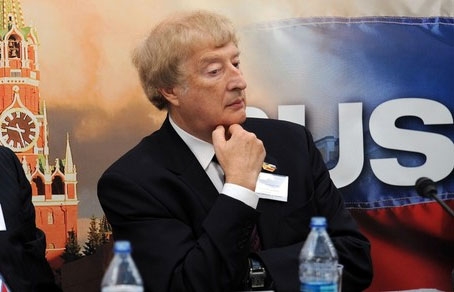

White House press secretary Jay Carney mentioned several reasons for canceling President Obama’s scheduled meeting with Russian President Vladimir Putin in Moscow, including the "lack of progress on issues such as missile defense and arms control, trade and commercial relations, global security issues, and human rights and civil society in the last 12 months.” However, it was the Edward Snowden affair that was a dominating factor for making this obviously mistaken decision of historical proportions.
All the reasons given by the White House were known before and during the scheduling this summit, so the only new factor was Mr. Snowden. No smoke screen and embarrassing excuses can hide this fact. Even Mr. Putin’s continuing support of President Bashar Assad of Syria was not a problem during the diplomatic work in preparations for the summit.
Although some strange bedfellows such as Sens. Charles E. Schumer, John McCain and Lindsey Graham and others are praising Mr. Obama for depriving Mr. Putin of a high-profile moment on the world stage, Washington’s unheard-of extravaganza may hurt U.S. interests in the long run. This is a senseless humiliation of an important international player who already helped America many times in the past and whose help in different parts of the world we would definitely need in the future.
As far as I recall, this is the first time a U.S. president has canceled a publicly announced summit since the end of the Cold War and regrettably, the American position does not look like it stands on the high moral ground.
Most likely, Mr. Obama could not withstand the pressure from U.S. "Cold Warriors,” for whom Pat Buchanan found an elegant term, "McCainiacs,” and the media, which almost unanimously blamed Mr. Obama for his spineless Russia policy. They kept constantly demanding outright that anti-Putin rhetoric be toughened because of Russia’s backsliding on democracy, and they urged Mr. Obama to support the political opposition and its latest addition — the homosexual community — which is mercilessly persecuted by Putin regime.
In this black-and-white world, the situation around Mr. Snowden — a fugitive whistleblower to some Americans and Europeans, but a traitor to others — just does not fit the generally accepted scheme. U.S. public opinion is almost equally divided, but the media and many U.S. conservatives are leaning more toward the whistleblower definition. Thus, there is this challenging conundrum: Why would a brave fighter for the observance of U.S. Constitution choose to seek asylum in that dreadful Mr. Putin’s Russia? Even on Syria, it looks like Mr. Putin’s views on the rebels are not too far distant from that of conservatives, who think that Obama administration policy toward Syria is a slow train wreck.
Rep. Scott Perry, Pennsylvania Republican, thinks Mr. Snowden is a traitor — despite the fact that he acted to uphold the American people’s "right to know” about the surveillance programs. He’s a traitor, says Mr. Perry in his "Voice of Russia” interview, because he "informed foreign journalists about the [National Security Agency] misdemeanors instead of revealing that information congressionally.”
Forty years ago, Soviet authorities brought the same accusation against the "gulag whistleblower” Alexander Solzhenitsyn. In fact, Leonid Brezhnev and his Politburo cronies did not deny that what Solzhenitsyn wrote in his book "The Gulag Archipelago” was true. They just regretted the fact that Solzhenitsyn, then a Soviet citizen, did not use home channels for his revelations. It looks like history repeats itself, with U.S. congressman repeating, nearly word for word, the phraseology of Soviet Politburo rulers.
Whether we call Mr. Snowden a traitor or hero, we must acknowledge that this unfortunate affair was not initiated by Russia, but by a National Security Agency employee. There are plenty of KGB or FSB defectors in the United States, and the Russians never used this as an excuse to cancel the summits or even routine bilateral meetings.
Unfortunately, Mr. Obama did not take a high road in this sad affair, but the suspense still continues. Let us see if Mr. Putin gives Mr. Obama a lesson and takes the high road by not snubbing the president in the upcoming Group of 20 meeting in St. Petersburg.
It is ironic that Mr. Obama confirmed this trip on Jay Leno’s "Tonight Show.” Is that the best venue for the Washington foreign policy these days?
Edward Lozansky is president of the American University in Moscow, Professor of World Politics at Moscow Sate University



.jpg/250px-ElbeDay1945_(NARA_ww2-121).jpg)





